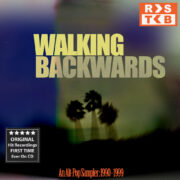2023 Favorite Reissues 

Somehow I feel like I didn’t get to enough reissues this year, at least not as many as I’d have liked, but there were some choice archival releases, and some that brought out long wished-for favorites from the pile of lost records. If you want to nitpick, two of these came out abroad in 2022, but are just now getting 2023 US availability. Since they’re just now hitting home, they’re making the ’23 list. Sift through and enjoy!

Acetone – I’m Still Waiting
The box set offers up all you could ask for from a completist standpoint. The records are beautifully presented as both audio and visual components, and the accompanying notes by Spaceman and Drew Daniel (Matmos/The Soft Pink Truth) offer a nice counterpoint to the collection of archival photos. Throw in a disc of rarities and its a done deal. The band was absolutely in need of a spotlight, and this set is more than any fan could ask for, and a necessary primer for those who missed out in the first run around. Hell, if Duster can captivate a new generation looking for quiet desperation, then wait ’til they get a load of Acetone.
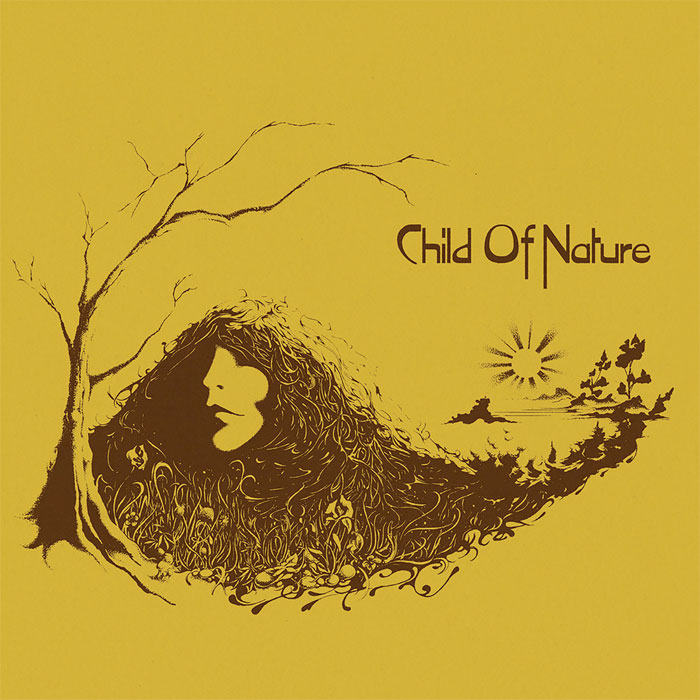
Various Artists – Child of Nature
Like Belong To The Wind, Forager’s latest compilation leans into feeling rather than historical context. For me, this kind of compilation can go two ways. The first is an almost academic approach to covering a time, label, or musical enclave. Nice to have from a completist standpoint, these releases can also sometimes feel like singles shelved in a library — documentation rather than curation. The second type leans into that curation aspect, creating a compilation that’s more mood than method. Antithetical to the algorithm, it’s a human hand on the wheel steering deep into the heart of sound. Forager has proven masters of this type of compilation and Child of Nature is one of their best yet in this regard. It’s a compilation of grey-skied desperation nestled in pastoral charms and as essential as anything in their catalog.

The Chills – Brave Words (Expanded and Remastered)
With Phillips himself behind the remixing here, there’s less to wonder about whether a new hand in the dough is warranted. Hindsight has given him a hand in reshaping the album into something that falls more in line with what would come on Submarine Bells and Soft Bomb. From the first moments that Brave Words (Expanded and Remastered) hits the speakers, its like hearing the record for the first time. With the kind of care given to restoring renaissance works, the color and shading of the album is pulled out of the grime, flinging the album into a wide panorama from its tintype origins.

Dave Evans – Elephantasia
This is his first formal album, also mostly home-recorded, though the close atmosphere only serves to bolster Evans’ intimate, fingerpicked style and confessional songwriting. With members of long lost prog band Squidd behind him, there are some more robust arrangements on Elephantasia, finding Steve Swindells (Hawkwind) on keyboards, John Merritt on bass and Rodney Matthews on drums. The record also plays a bit with effects, utilizing a two-track recorded to affect speeds on some songs, pushing the bounds of the album past the point of some of his more staid contemporaries.That touch of prog, along with Evans’ darker lyrics left him in a bit of a limbo — not heavy enough for the burgeoning progressive scene, not quite as buttoned up as the Renbourn/Jansch/Drake school of songwriting. Though he’s certainly digging into the same dirt as those three, it’s easy to see how the record can tip towards the well of Tull and Jan Dukes De Grey. The record has languished fifty years out of print, but now Earth has restored it to its rightful place in the folk pantheon.

Chris Forsyth – Solar Motel (Expanded)
If you’ve been a fan of Chris Forsyth’s latter day works, then the turning point for his now signature style began with Solar Motel. Both the album, and the rotating band that would accompany tours around it were built out of a sense of exploration, rooted in cross-streamed guitar work and hypnotic rhythms. This year, Chris brings us back to the motel, with a full reissue of the original album alongside two new tracks, ‘Long Warm Afternoon’ and “Harmonious Dance,” completed during the “Solar Motel” sessions and a 20+ minute exploration of the first movement paired with “Paranoid Cat” live on WFMU. Essential in its own right, but if you’re coming late to the Forsyth party, then this is an excellent point to jump in.

Roxy Gordon – Crazy Horse Never Died
A collection of story songs from poet, journalist, artist, activist and songwriter Roxy Gordon. The Native American songwriter found himself circling the same Texas dives and dirt-worn routes as Townes Van Zandt, and there’s certainly some crossover appeal between Gordon’s works and the poet laureate of the downtrodden. Paradise of Bachelors continues their fine archival work bringing new life to Gordon’s 1988 album Crazy Horse Never Died. The album is by turns tough and tender, a rough diamond dusted off for new ears in 2023. The reissue includes new and restored artwork and a chapbook, featuring forty-eight pages of lyrics, essays, photographs, and First Coyote Boy’s extraordinary drawings for each song.

High Rise – Dispersion
High Rise has often been held in parallel to Les Rallizes Dénudés — offering a less damaged, but no less potent strain of ‘80s Japanese psychedelia. The early works found Munehiro Narita ensconced in an exhaust fume foundation for his scorched guitar grind. Where the Rallizes could go in headier directions, Narita was a master of speed and scorch. They were the Motorhead to the Rallizes’ Hawkwind. The third album lets the band take a bit of a breath, slowing the pace some, but that scorch remains just as intense. The record is a wellspring of gnarled riffs, bass rumble, and garage-grounded body blows of wah-wah and amplifier crust. The record might not be as raw as the first two, but it still showcases Narita’s impact on the guitar, setting the stage for Acid Mothers Temple, Boris, Comets on Fire, Major Stars, and more to follow.

John Fizer – Treasure Man
Through extensive efforts, producer James Johnson was able to work to restore the ’77 recordings, sending them off to Tardon Feathered to have the mold removed and the tapes cleaned. The songs sound as vibrant as ever, weathered folk that sits between James Taylor, Cat Stevens, and Jim Sullivan. The b-side captures a ‘90s show at Freight and Salvage, recorded to an equally hard-loved tape, restored this time by mastering engineer Bob Katz. The studio and live cuts give a full picture of Fizer’s works, coming together into an album that may have never been were it not for the dedication of those who were enraptured by Fizer’s songs.
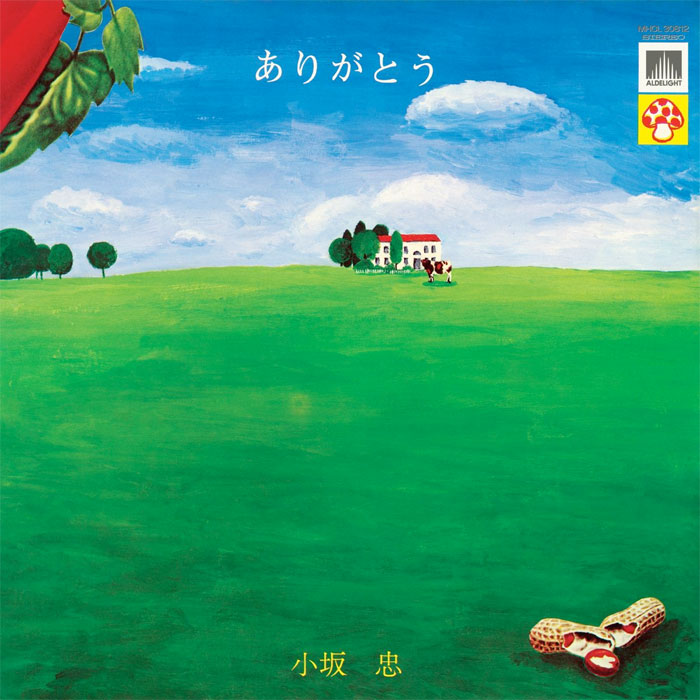
Chu Kosaka – ありがとう
The album is steeped in a resigned strain of country rock that’s flawlessly recorded and imbued with Kosaka’s smoke-curl cool and bittersweet soul. The record finds quite a few members of Apryl Fool working their way into the ranks, creating an album of nuanced country just a few years after their collective psychedelic masterpiece. Kosaka’s hangdog vocals and the stunning guitar work from Kimio Mizutani and Shigeru Suzuki solidify the album as a true classic. It’s fragile, bruised, and vulnerable. Were it not for a language barrier, this album should have taken its place alongside records from Townes, Crosby, Neil, or Hardin in the same era.

Laraaji – Segue To Infinity
This collection of Laraaji’s early works only serves to solidify his reputation as one of the formative voices in New Age. Eight longform compositions find Gordon attuned to the vibrations of the universe. The set is comprised of his 1978 debut, Celestial Vibrations, along with six additional compositions recorded around the same time. Numero sourced the pieces from acetates rescued from the sessions. Fleshed out with a ton of photos and an essay from Vernon Reid, its an essential for fans of the current curve towards ambient as well as scholars of the Laraaji and the ‘70s roots.
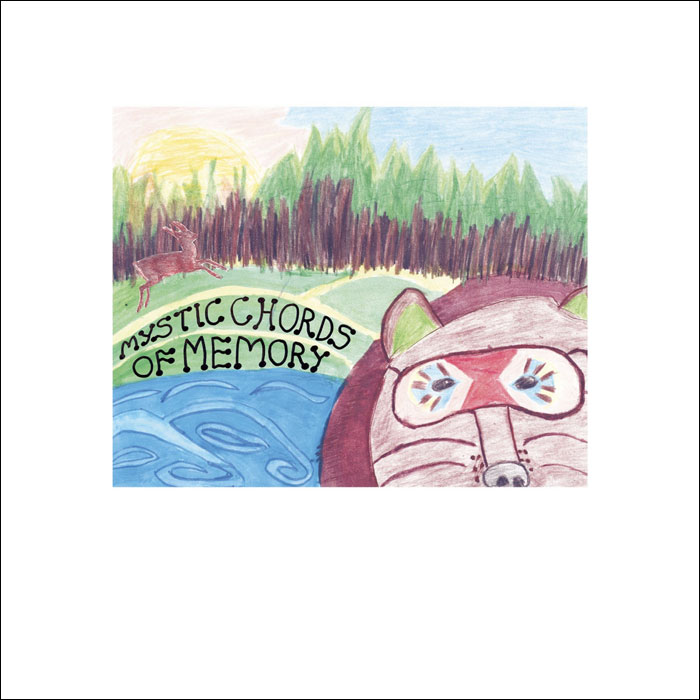
Mystic Chords of Memory – Mystic Chords of Memory
Coming out of the Sparks’ bow (for the time being) on Make The Cowboy Robots Cry, Chris Gunst connected with Aislers Set’s Jen Cohen to form Mystic Chords of Memory. The record is psychedelic, rooted in folk, with touches of lightly lapping country, but its nebulous nature refuses to let it anchor to any true genre. The record digs deeper into the haze that shrouded Trees and Cowboy Robots, stripping away the widescreen sound for something more intimate — a Super 8 snapshot of the rolling plains. Its grainy textures obscure some shades, but among the hiss and humidity, the record is all the more charming for its rumpled exterior. It’s a dog eared book of a record, embracing the aesthetics of private press folk, if the locked away loners were also dosed on sunshine psych squeezed through a Viewmaster veneer.

The Particles – 1980s Bubblegum
The band, taking inspiration from UK and US punk adopted the stripped and stained approach, though its clear that there’s a more tender strain at work within The Particles’ work. The band’s sound parallels the kind of stripped bare, bone-dry post-punk of Young Marble Giants and the simple, yet engrossing bubblegum gone gritty appeal of Marine Girls and Dolly Mixture. Chapter House gives the band’s catalog its full diligence, capturing not only the songs from the three singles, but also compilation entries, early-demos, live versions from a JJJ radio session and a short interview that would accompany that session. The band quite certainly never got the accolades or even the awareness outside of their native Australia, and this excellent comp aims to right a few decades worth of wrongs.

The Sea Urchins – Stardust
This comp culls the bulk of The Sea Urchins’ catalog into one place, starting with those early Flexis and running out through the end of their Sarah tenure in 1990. It’s a fairly complete picture of the band that only leaves out their ’88 curio on Fierce and their swan song on Cheree.The band’s sound lays a blueprint for not only Sarah, but for Creation, and quite a few of the post-fanzine labels that dotted the English landscape at the time. Swaying from dreamy, sun-squinted strummers to triple-time slips through jangle oblivion, the band had a way of fitting a bit of psych’s smeared lens onto the indie pop canon.

Sidney Sager and The Ambrosian Singers – Children of the Stones
This one is an amazing curio to say the least. Often cited as an inspiration for hauntology, latter day interest in pagan folk, and ritualistic texts like Weird Walk, the series Children of the Stones can’t be divorced from its haunting score. Up until now that score has not been available, but thanks to Tank Records, the creepy works of Sidney Sager and The Ambrosian Singers are here in gatefold vinyl alongside a loving art spread from Julian House. The score itself only consists of seventeen minutes of music, but the composers make those seventeen minutes count. Each small snippet of ghostly, choral works underscores the deepening well of madness that surrounds the show’s unfolding mystery.
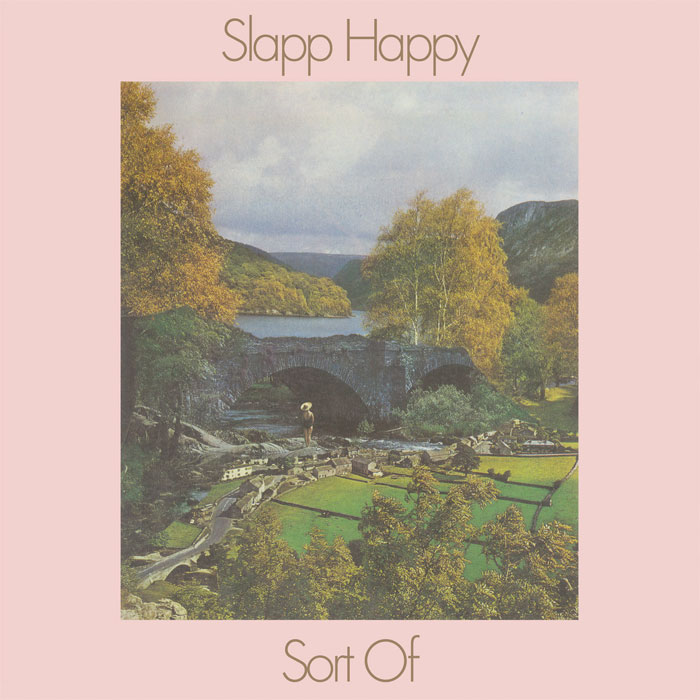
Slapp Happy – Sort Of (50th Anniversary)
The record flirts with tender moments — “Who’s Gonna Help Me Now,” “I’m All Alone” — but mostly digs into something that’s neither pop nor prog, but something in between. There’s a shadow of Beefheart and certainly an appreciation for the Velvets, but the band also blends genre like paint, dipping country, pop and folk into the kind of grandeur that permeated Tommy and Arthur, at least on some subconscious level. They never play it straight, though, letting the brushes with pop crumple with a wink and a smirk. The record has been given a 50th anniversary repress by Week-End Records, an extension of the German festival of the same name.

Pauline Anna Strom – Echoes, Spaces, Lines
Shedding light on the works of composer, healer, and medium Pauline Anna Strom, the RVNG, Intl have worked up a four-album box set that collects composer Pauline Anna Strom’s albums Trans-Millenia Consort, Plot Zero, and Spectre alongside an unreleased album, Oceans of Tears, that’s been lying in wait but never found its way into the world until now. The composer was an adamant opponent to labeling her works as New Age, though they touch on certain similar elements. The pieces here are more closely rooted in a love and excitement with Klaus Schulzez, Brian Eno, and Vangelis all of whom she’d heard beaming out of Bay-area radio station KPFA. Strom sought to emulate her influences, and would record as she composed, a technique that often lead these documents to being the only time a work would ever be performed, never to be recreated in the same way. The works were a conduit for her spiritual touchstones in the occult, feeling as if the tones passed through her on their way to the tape.

Souled American – Flubber
This year finally saw the wide release of the Souled American catalog, with digital editions coming to Bancamp and a spate of articles and information popping up in well-respected places. Even here, Eric D. Johnson sung the praises of the band’s catalog in a Hidden Gems piece. It feels like there could have been no better time for a reappraisal of the works of Souled American, a band that embodied the Cosmic American ideal as it slides into experimental territory. The band’s first two albums are more rooted in the firmer, and the band may be no more in their element than on Flubber. The original was issued on Rough Trade in 1989 and ode to Gram Parsons and Skip Spence. Now, the band has issued the digitals through their Bandcamp, a must for Cosmic American heads digging through the past.
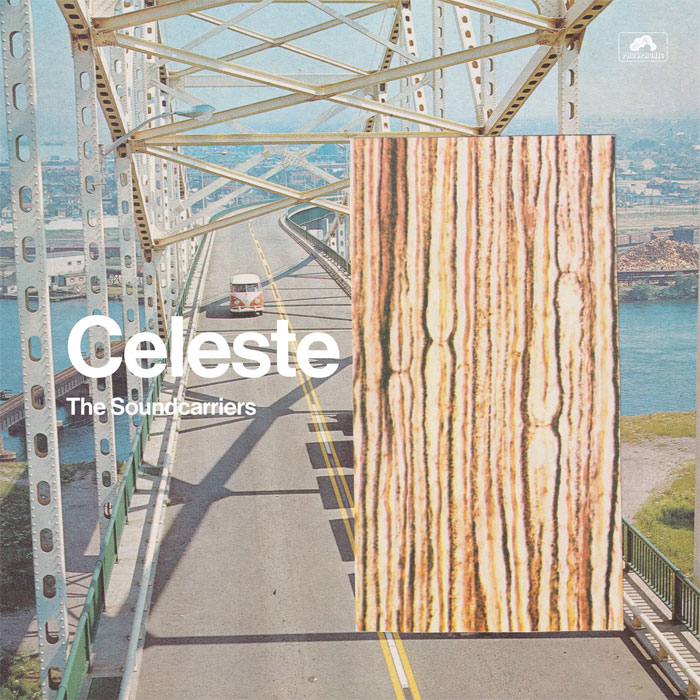
The Soundcarriers – Celeste
The band’s sound, a psych-pop cocoon of vernal beauty and quiet cool found further reach on their Ghost Box follow-up and they released one of last years’ most essential records. For the heads, they helped shape the world of Jim Gavin’s long under-appreciated Lodge 49. Several songs from the album would wind up among the soundtrack of the show, and it’s the band’s grasp of humid, alchemical psychedelia that made it most fitting. The songs, like the show have a sense of wonder to them, a step through the veil that nestles the listener between psych-pop, lounge, Bossa Nova, and jazz. Slowly rotating though smoked glass menageries of sound, the band comes into their own here and its great to have it back in print for those that don’t number among the 1,000 that had a shot the first time around.

Yukimasa Takebe – ゆふずけびとのうた
The past few years have seen a wealth of ‘60s and ‘70s Japanese folk and rock albums make their way back to the shelves — from Chu Kosaka’s indispensable debut, the official issues of Les Rallizes Dénudés, Makoto Kubota, Jacks, and the incredible work that The Black Editions is doing with the PSF catalog. There are still plenty more to dig out and this one has finally made its way to stateside availability, having been reissued in Japan at the end of last year. Decidedly absent (as was Kubota) from the tracklist on the excellent primer Even A Tree Can Shed Tears, the sole album from Yukimasa Takebe would have fit quite nicely among the ranks on that collection. Similarly rooted in the Western strains of country and folk, the album is a lost gem from 1972 that could easily spring towards the top of any list of ‘70s folk essentials.

White Heaven – Strange Bedfellow
On their follow-up, 1993’s Strange Bedfellow, White Heaven reins in some of the ragged edges, but never tempers the heat that fuels their forge. The record still reaches sweat level, but there’s a cleanness to the burn this time around, paired with a few forays into jazz-rock and West Coast psychedelia that were absent from the most blues-born debut. The debut will always be the record that snags the marquee moments among Japanese obscurities, but the more that Strange Bedfellow burrows under the skin, the more it reveals itself to be the more nuanced record. It’s great to have it back in print from the folks at Black Editions. Truly doing the world a service over there.


